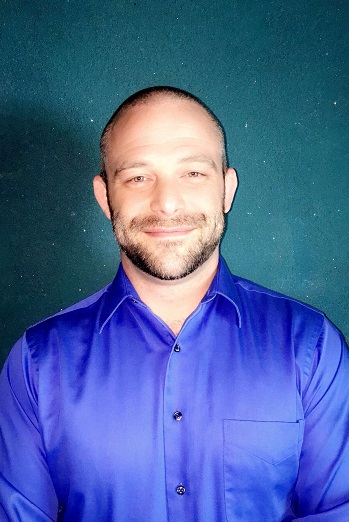From the Front Lines: Trucking

John Glinski III
Vice President
Truck Insurance Office, Inc.
Post Falls, Idaho
How did you get started?
I’ve been doing this for 17 years with my father. My father and grandfather started the agency about 40 years ago and specialized only in trucking, so I grew up never wanting to do insurance or anything like that. But toward the end of high school, I just started gravitating into the industry. One of the things that really pulled me into it was just helping people.
Why trucking?
It’s a very service-heavy industry that requires a quick turnaround. Our clients really need us, and we know that is something we can focus on. If they need certificates or endorsements, everything needs to be very fast-paced. And if things aren’t done right, these clients could be held up and lose a ton of money.
And trucking clients gravitate to us. If they have questions about trucking, we’ve dealt with plenty of situations. From cargo claims to problems with the Federal Motor Carrier Safety Administration (FMCSA), we can help all of them because we do it all day long. It’s just a really good niche for us—we know it like the back of our hand.
Biggest trucking changes?
There have been a lot of changes.
It’s a high-risk industry, so the claims payouts are high, and there are not a lot of carriers that want to be in the industry. Carriers keep exiting because it’s a really tough market to just have your toe in.
We’re seeing claims getting higher. Costs and exposures for truckers are both increasing, so the rates keep going up. For example, the rising cost of tractors which have a diesel emissions filter means it’s costing more to repair the trucks and the claims are going up. If a trucker hits a deer and it damages that filter, instead of costing $7,000, it starts off at $26,000 because those parts aren’t interchangeable.
And regulations for truckers are getting heavier, too. The industry in general, with the government ruling over it, basically has a zero-tolerance policy on most of the truckers. They have to be absolutely perfect. If they’re not, the carriers won’t underwrite them. It’s getting tougher and tougher.
Biggest trucking challenges?
Knowing your markets and knowing your appetites. Each specific market has a specific appetite. Every part of the trucking industry requires something different. That means that sometimes if you don’t read a contract or you don’t look at something, you can really leave your client open to being blindsided with a type of coverage they weren’t sure they were supposed to have.
Future of trucking insurance?
The shortage of drivers is becoming such a huge topic right now. Most carriers won’t insure anybody until they’ve had two years of experience. A lot of carriers will honor military experience if someone has documented experience as a master driver, so they’re using that to help our veterans.
Truckers are the lifeblood of the nation. If they stop running, it would only take a week or two for our stores to be completely dry. This industry is not going to go anywhere, but these situations aren’t getting better.
They’re also talking about automated trucks coming into the industry and taking over jobs, which might turn into insuring a lot more automated equipment. But at this point, everything’s up in the air. It’s kind of far off, but it’ll probably happen to the local guys before we see it with the long-haul guys.
Advice for a fellow trucking insurance agent?
The main advice I would give is that you either have to have both feet in or both feet out. You can’t really dabble in it. It’s just so service-heavy. You have to really know your stuff, and you have to be available all the time.
Favorite trucking success story?
I once helped a pair of brothers in Alaska. They wanted to start their own trucking company, but the problem was that the older brother was 21 and the younger brother was 19. Trucking laws state that you can’t go interstate until you’re 21. In the industry, you typically can’t get insurance for anybody under the age of 23. Well, I was able to find them coverage, but it was ridiculously expensive.
These brothers rolled up their sleeves hauling autos and they ran with it. They did the state for a couple years and paid their premiums until the younger brother turned 21 when they set up another outfit and started going interstate, running autos further. By the time their rates started to come down, they’d been in business for 16 years. They’re still in business today.
Will Jones is the IA assistant editor.










